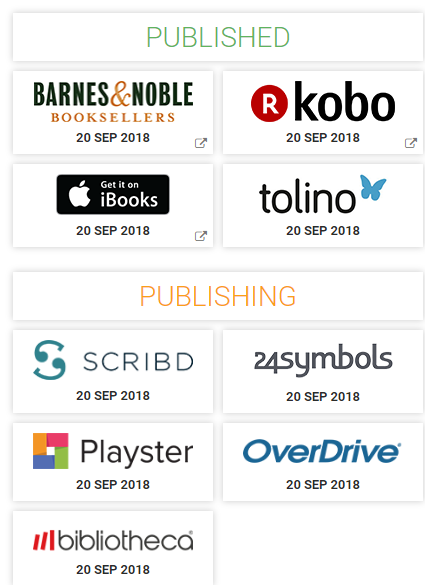This being the Internet, I’m sure quite a few readers will instantly take exception to the title of this post.
Fear not! This is not about me hating on someone for their politics, though I’ve certainly got some venom in reserve for that these days. Nor is it about their opinions in some fandom. At this point in my life, I try not to slag on any fellow creators, even if I think they could have improved in whatever I’ve read or played or watched. The gods know I’ve made my mistakes and stuck my foot in my mouth plenty of times.
When it comes to a big ol’ public post to put another human being on blast, I reserve my ire for one particular kind of person.
Would-be scammers.
Poof! Everything I’ve Ever Wanted!
Part of the experience of having an indie book self-published is that I get targeted by some inauthentic folks who find my email or my phone number and call me up, promising everything a writer would dream of on a platinum platter. One such type of call goes like this:
I get a call that my caller ID says is Universal Pictures.
I answer, because it usually happens at seven in the morning and I’m bleary and just want to make the ringing stop. And they say…
“Hi, Mr. Hetler [sic], this is Jordan Moblo, Executive Vice President of Acquisitions at Universal Studios. Do you own the rights to the book Civil Blood?”
“That’s me.”
“Mr. Hetler, our intellectual property review team have read your book and believe strongly that it is the sort of A-list property we look for. We are willing to purchase the rights to your book for $300,000 to make a feature film out of it or a Netflix series adaptation. Would you be interested in such a deal?”
“I’m listening.”
“What we’ll do is pay a writer to write a script, put together a pitch presentation, and attract investors. Could you give us your e-mail address so we can forward you a contract?”
“Yeah, okay, I can take a look at your offer.”
This is, in fact, past the point where I stopped listening, because they’ve already hit a LOT of red flags. Then the email arrives… and the last flag flies up. Let me tell you what those flags are, because on the off chance you’re ever in the same situation, this could be useful.
Scam, Scam, Eggs, Sausage and Scam
#1: The Email is Fake
The e-mail always clinches it, because it’s never from a studio’s actual e-mail extension. The mail title always has a name of UNIVERSAL PICTURES (or whatever) and then it’s “jordanmoblo@universal.pictures.mail.com.”
You can Google actual e-mail extensions for people who genuinely work for a major production studio, because they’ll have them. These billion-dollar conglomerates pay for their own employees to use that kind of thing.
A real Universal email would be something like “jordanmoblo@nbcuni.com.” The fake address, you’ll notice, ends in “mail.com,” which is an email-address company like Gmail or Hotmail. You can get your own address that says anything in five minutes or so, but it’ll end with “mail.com.” So the chances that this message is the real deal? Not bloodly likely.
A variant of this happened to me recently with someone impersonating the literary agent Alex Glass. I got a “Endorsement to Major Publishing Houses” e-mail from “alex@glassliterary.org.” If you’ve got sharp eyes, you can see the problem.
A professional agent making those sweet deals isn’t going to have an extension that ends in “.org.” It’d be “.com” because the last thing an agent wants to be is a charity. But the “.org” version was available, so the scammer scooped it up.
#2: The Chain of Command Doesn’t Check Out
Far earlier than the email is the telltale sign when I picked up the phone. The chance that some executive vice president is going to be your first point of contact is Not Fricking Likely.
People in the film biz with any reasonable amount of fame have personal assistants that schedule meetings for them, because their weeks are invariably packed. Even when they aren’t, there’s a constant habit of trying to build anticipation. They like the power move of making anyone more desperate than them wait for the meeting.
Did you see Looney Tunes: Back in Action? In that movie, a Warner Brothers executive says something like “Move my 1:00 to my 2:00, then move my 11:00 to my 1:00 and move my 2:00 back to 1:30 and then cancel it.”
That’s an exaggeration for laughs, but I guarantee that joke got approved because the folks in production could relate.
Oh, and it’s never going to happen with them calling at seven in the morning like some fresh-faced production assistant on their first day. Early bird or not, even they know a call that early is going to be unwelcome.
As for agents, generally agents are inundated with scripts that writers send to them. They have no need to go searching through hundreds of indie novels that haven’t sold a bajillion copies already, looking for some perfect rose on top of a mountain of shit. (Not to slag indie novels — those roses do exist, but the point is, agents don’t need to reach that far to find manuscripts.)
#3: The Deal is Too Fast, Too Much, and Too Good to be True
Entertainment studios, at least back when I worked for them in the early 2000s, didn’t just “purchase rights.” They didn’t drop a giant chunk of change like $300,000 on a book this early in the process. They’ve invariably got a big slate of properties being pitched to them by the smaller fish — production companies. Producers try to find good stories, sometimes in the indie world but more often by talking to writers with agents and traditional publishers. Then they option them to have a chance for them to be made.
The deals are typically more like “I’ll give the author $5,000 for the rights to shop it around for a year.” Then they talk to a screenwriter who’s willing to write a script on spec (i.e. for no money unless the script sells). They work on that in the ensuing year, put the script in front of actors and directors to see if they want to attach themselves, and tie it all together in a pitch. If the year goes by and no one’s interested, the producer’s out $5,000 instead of sitting on a property that could be a dud.
The one exception to this would be if the book is selling like hotcakes (a fact visible in the Amazon rankings, so they shouldn’t have to ask you how it’s doing) and if multiple studios have somehow heard of it and get into a bidding war. But no executive is going to assume one of those already exists and preemptively offer $300,000 when they could start off at 1/60th the price. $300,000 is a scammer trying to get you to say “yes” to something.
#4: And Then They Put the Touch on You
This is the red flag that all legit agents warn authors about. Legit agents make their money off authors when those authors get paid by publishing companies. They take their 10-15% or what-have-you out of the book deal and the rights to other media that they hammer out in big fancy contracts.
What they do not do is ask you to pay some videographer to make a book trailer for you. Or pay some screenwriter to write a screenplay to sell it to a production company. Or anything else that makes the money flow from you to them. It should be flowing in the opposite direction.
Sometimes, if they’re impersonating agents or other promoters, they try to walk you through looking at their website. Gosh, look at all those other writers whose books have gotten onto the New York Times bestseller list! Wouldn’t it be impressive if you had any guarantee that the person on the phone had anything to do with it?
Now, it may seem more reasonable if someone isn’t promising hundred-thousand-dollar deals, but instead calls you up saying they can promote your book to get it into a huge book fair too far away for you to attend. Or maybe they want to create a book trailer for you that only costs $5,000 and because they “believe in your book so strongly” they’ll cover $4,000 and all you have to do is send them $1,000.
Just remember the verifiable facts: some stranger called you up out of the blue and tried to talk you into sending them $1,000. For a scammer, that’s their payday. All the other numbers are wisps of air until proven otherwise.
You shouldn’t be worried about a marketer doing a job of questionable quality on advertising your book. You should want to know what’s your evidence that they are going to do anything at all?
Do you really have reliable contact information for them and a lawyer you can hire if things go south?
Do you have any proof that “the biggest book fair in Mexico” (or wherever) they want to take the book to will actually have them manning a booth, hawking copies? Or are you going to find out that they’ve blocked your number, possibly declared bankruptcy, and left no forwarding address?
Are you going to find that your contract says “you will receive royalties on your re-branded book once it becomes profitable,” with no definition of “profitable?”
I thought so.
Accelerate to Mock One
I’ve done this enough that I’m starting to take great pleasure in ruining these folks’ days. To the “movie studio” wannabes, I tell them this:
“I was greatly impressed at your quote of offering $300,000 for the rights to my indie novel. I have excellent news. I believe in your company so much that I’ll let you have a much better deal. Send me $5,000 to option the rights for a year, and use all the saved money in your budget to create the promotional materials. You can even pay a screenwriter to work up a treatment for a script that I can review. I’m sure you’ll agree that this is a generous offer, and if you have any legitimacy to your claims of business acumen, you will take it. Somehow, I don’t think you will.”
To one wannabe promoter, I wrote:
“Thank you for brightening my day with your kind letter. I have Googled Seraphim Global Marketing LLC, and I can find exactly one book on your site, River’s Trail Home. On that site, it has no reviews. On Amazon, it exists and has *one* review in English and *two* in Amazon.be (which I guess is Belgium). That’s it. While my book does not have many itself (it’s got 47), those numbers do not exactly convince me of your company’s marketing prowess.
“If you want my attention, tell me what the last line of Civil Blood is, and what it’s a callback to (a very similar line occurs earlier in the text). Then, since you are “committed to investing” in books like mine, get me three more reviews on Amazon. They can be from any source and any rating. Otherwise… I will remain unconvinced.”
The most hilarious part of that one was that they leaped into action and wrote back.
“Your point about building trust and legitimacy resonates deeply. I appreciate that you’re seeking genuine engagement with your work, and I’m more than happy to meet your request. Without giving too much away for potential readers, the last line of Civil Blood is a callback to a pivotal moment earlier in the narrative where Victor Varkas reflects on justice, emphasizing the very theme of the book—a commentary on legal rights in a world of the undead. The callback powerfully ties together the personal stakes and systemic struggles, giving closure to both plot and character arcs.”
Sounds cool, right?
Except there’s no character called Victor Varkas in Civil Blood.
Also, that’s not what the last line is about.
This guy could have paid $2.99 for a Kindle copy of my book, flipped to the end, then done a search for similar phrases, and gotten the appearance of what I want. Instead, he asked some AI crap to summarize it for him and got a confidently wrong answer. Not only was he a scammer, he was a lazy scammer, and cheap enough that he wouldn’t even pay for a single copy of my e-book. (Seriously! It’s $2.99 for a 400-page work! Value, baby!)
As for the reviews, he sent me screenshots of people reviewing Civil Blood on Amazon like I was asking for praise instead of trying to get people to read the damn book and comment about it. So I don’t think he was super bright, either, or at least he clearly misunderstood the assignment.
I Tried So Hard, and Got So Far, But In the End, It Doesn’t Even Matter
Now, I don’t think these guys (and they’re all guys so far) are ever going to stop. I told “Readers Magnet” that I wasn’t interested and to stop calling me a year or more ago, and my caller ID still shows their name and number popping up. Such is the indie publishing life. Apparently even putting your number in the national Do Not Call Registry doesn’t fully deter these jerks.
I don’t pretend I can hold back these idiots’ tide with a bucket. But hopefully, this post will be another resource for writers to refer to when they want their suspicions confirmed. Other sites like Writer Beware dedicate much more time and resources to this sort of thing, so be sure to check them out.
And if the scammer wants to know why you’re laughing at their e-mail, just send them a link to here. Because that’s what I’m going to do from now on.




